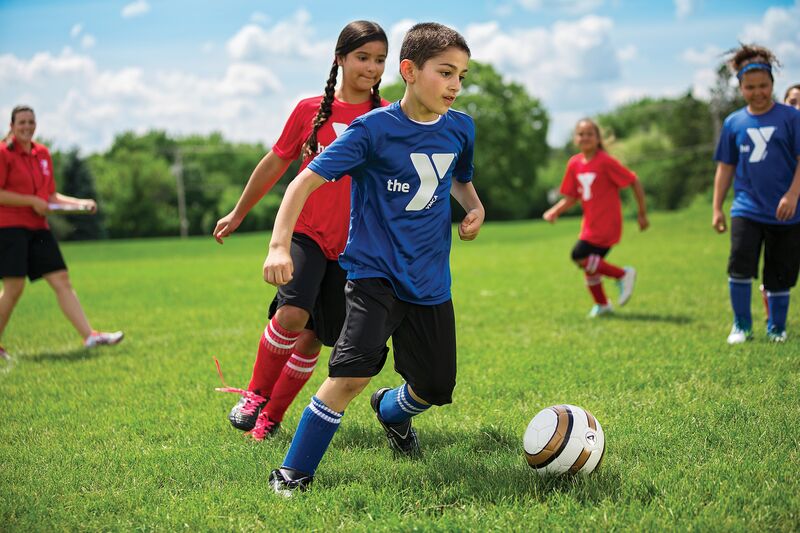Youth soccer has become a global phenomenon, shaping young athletes and building the foundation for future superstars. Whether you're a parent, coach, or just someone fascinated by the beautiful game, this article dives deep into the world of youth soccer. It's not just about kicking a ball; it's about nurturing talent, fostering teamwork, and creating lifelong memories.
Picture this: a sunny Saturday morning, kids racing across the field with unbridled energy, laughter echoing through the air. Youth soccer is more than a sport; it's a journey of growth, discipline, and passion. And hey, it's not just for the kids—it's a bonding experience for families too!
So, why should we care? Well, youth soccer isn't just about scoring goals. It's about teaching life lessons, building resilience, and creating a community where every kid feels like a champion. Let's dive in and explore what makes youth soccer so special.
Read also:Hd Hub You The Ultimate Guide To Your Streaming Needs
Daftar Isi
- The Story Behind Youth Soccer
- Benefits of Youth Soccer
- Training and Development
- Skill-Building Through Soccer
- Nutrition for Young Athletes
- Preventing and Managing Injuries
- The Role of Coaches in Youth Soccer
- Parents: Your Role in Youth Soccer
- Youth Soccer Tournaments Around the World
- The Future of Youth Soccer
The Story Behind Youth Soccer
Youth soccer didn't just happen overnight. It's a rich tapestry woven with decades of passion and dedication. Let's rewind a bit and understand how it all began. Back in the early 20th century, soccer was already a favorite pastime for kids in many countries. But it wasn't until the mid-1900s that organized leagues started popping up, giving kids a platform to showcase their skills.
Today, youth soccer has evolved into a well-structured system, with leagues, tournaments, and even academies dedicated to nurturing young talent. It's not just about the game anymore—it's about building character and instilling values that last a lifetime.
Key Milestones in Youth Soccer History
- 1950s: The birth of organized youth leagues in Europe.
- 1970s: Expansion to North America with the rise of local clubs.
- 2000s: Global tournaments like the FIFA U-17 World Cup gaining popularity.
Benefits of Youth Soccer
Alright, let's talk benefits. Youth soccer isn't just about physical fitness; it's a holistic experience that impacts every aspect of a child's life. From improving physical health to boosting mental well-being, the advantages are endless. And hey, who wouldn't want their kid to grow up healthy, happy, and confident?
Here are some of the top benefits:
- Physical Fitness: Soccer keeps kids active, improving endurance, agility, and coordination.
- Mental Toughness: It teaches perseverance, focus, and problem-solving skills.
- Social Skills: Playing in a team helps kids develop communication and teamwork abilities.
Long-Term Impact
Studies show that kids who participate in youth soccer are more likely to lead healthier lifestyles as adults. Plus, they tend to perform better academically and have higher self-esteem. So, it's not just about the game—it's about setting them up for success in every area of life.
Training and Development
Now, let's talk training. Youth soccer isn't just about letting kids run around; it's about structured development. Coaches use a mix of drills, games, and practice sessions to help kids improve their skills. And guess what? It's not boring—it's fun!
Read also:Exvikings Qbs Controversial Exit The Untold Story
Here's a breakdown of what a typical training session might look like:
- Warm-up exercises to get the blood flowing.
- Drills focusing on specific skills like passing, dribbling, and shooting.
- Small-sided games to simulate real match scenarios.
Age-Specific Training
Training varies depending on the age group. Younger kids focus more on basic skills and having fun, while older players work on advanced techniques and strategies. It's all about tailoring the experience to suit their developmental stage.
Skill-Building Through Soccer
Let's dive into the nitty-gritty of skill-building. Youth soccer isn't just about running fast or kicking hard; it's about mastering a range of techniques. From ball control to tactical awareness, every aspect is crucial for success on the field.
Here are some key skills players focus on:
- Ball Control: Learning to maneuver the ball with precision.
- Passing: Developing accuracy and timing in passing.
- Tactical Awareness: Understanding positioning and strategy.
The Importance of Practice
Practice makes perfect, right? Consistent training helps players refine their skills and build muscle memory. And remember, it's not just about the hours spent on the field—it's about the passion and dedication that drives them to improve.
Nutrition for Young Athletes
Nutrition plays a vital role in youth soccer. Just like professional athletes, young players need the right fuel to perform at their best. A balanced diet rich in carbohydrates, proteins, and healthy fats is essential for energy and recovery.
Here are some tips for parents:
- Encourage a diet rich in fruits, vegetables, and whole grains.
- Ensure adequate hydration before, during, and after games.
- Limit sugary snacks and drinks that can hinder performance.
Hydration Matters
Staying hydrated is crucial for young athletes. Dehydration can lead to fatigue, cramps, and even heat exhaustion. Make sure your kids drink plenty of water throughout the day, especially on game days.
Preventing and Managing Injuries
Injuries are a part of any sport, but with proper precautions, they can be minimized. Coaches and parents play a key role in ensuring the safety of young players. From proper warm-ups to using the right gear, every step counts.
Here are some injury prevention tips:
- Encourage proper warm-up and cool-down routines.
- Ensure players wear appropriate footwear and shin guards.
- Teach correct techniques to avoid unnecessary strain.
What to Do If an Injury Occurs
If an injury does happen, it's important to act quickly and appropriately. Seek medical attention if necessary, and follow a structured recovery plan. Remember, rushing back to the field can lead to further complications.
The Role of Coaches in Youth Soccer
Coaches are the backbone of youth soccer. They're not just there to teach techniques; they're mentors, motivators, and role models. A good coach knows how to balance discipline with fun, creating an environment where kids can thrive.
Here are some qualities of a great youth soccer coach:
- Patient and understanding.
- Knowledgeable about the game and its rules.
- Encouraging and supportive.
Building Relationships
Building strong relationships with players and parents is key to success. Open communication and mutual respect create a positive atmosphere where everyone feels valued and heard.
Parents: Your Role in Youth Soccer
Parents, you're just as important as the coaches and players. Your support and encouragement can make all the difference in your child's soccer journey. But remember, it's not about winning—it's about the experience.
Here's how you can support your young athlete:
- Attend games and practices to show your support.
- Provide a healthy and balanced diet.
- Encourage effort over results.
Managing Expectations
It's easy to get caught up in the competitive spirit, but it's crucial to manage expectations. Focus on progress rather than perfection, and celebrate every small victory along the way.
Youth Soccer Tournaments Around the World
Tournaments are a highlight of the youth soccer calendar. They bring together teams from different regions, creating a vibrant atmosphere of competition and camaraderie. From local leagues to international events, there's something for everyone.
Here are some famous youth soccer tournaments:
- FIFA U-17 World Cup
- Coca-Cola Cup
- Gothia Cup
Why Tournaments Matter
Tournaments provide a platform for young players to showcase their skills on a larger stage. They also offer valuable experience in handling pressure and adapting to different playing styles.
The Future of Youth Soccer
Looking ahead, the future of youth soccer is bright. With advancements in technology, training methods, and global connectivity, the sport continues to evolve. More opportunities are emerging for young players to pursue their dreams, whether as professional athletes or lifelong enthusiasts.
Here's what we can expect:
- Increased focus on player development and mental health.
- Expansion of youth leagues and tournaments worldwide.
- Greater inclusivity and diversity in the sport.
Embracing Change
As the sport grows, it's important to embrace change and innovation. By staying adaptable and forward-thinking, we can ensure that youth soccer remains a powerful force for good in the lives of young people everywhere.
Kesimpulan
And there you have it—a deep dive into the world of youth soccer. From its rich history to its promising future, this sport continues to inspire and transform lives. Whether you're a parent, coach, or simply a fan, there's something special about watching young athletes grow and thrive on the field.
So, what's next? Get involved, support your local teams, and encourage the next generation of soccer stars. And remember, every kid deserves a chance to shine. Share this article with your friends, leave a comment, and let's keep the conversation going. Together, we can make youth soccer a force for positive change!


